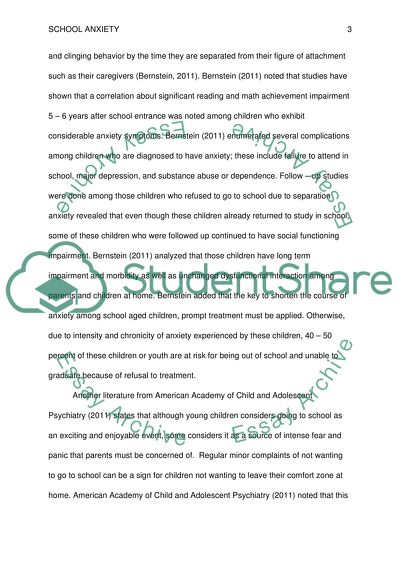Cite this document
(“School Anxiety Research Proposal Example | Topics and Well Written Essays - 1500 words”, n.d.)
Retrieved from https://studentshare.org/education/1439309-school-anxiety
Retrieved from https://studentshare.org/education/1439309-school-anxiety
(School Anxiety Research Proposal Example | Topics and Well Written Essays - 1500 Words)
https://studentshare.org/education/1439309-school-anxiety.
https://studentshare.org/education/1439309-school-anxiety.
“School Anxiety Research Proposal Example | Topics and Well Written Essays - 1500 Words”, n.d. https://studentshare.org/education/1439309-school-anxiety.


